Parenting is a journey filled with love, joy, and, at times, overwhelming challenges. There are moments when our children's behaviors - tantrums, defiance, whining, or even just their boundless energy and unending noise can ignite something deep within us. These reactions, often disproportionate to the situation, are known as triggers. They are usually the echoes of our past: unresolved emotions or beliefs that resurface in the heat of the moment. In this post, we address a heartfelt question from a parent navigating these very challenges...
Read more...
Every parent wants to provide a nurturing and supportive environment for their children. However, many parents struggle with hidden fears and emotional responses stemming from their own past experiences. Recognizing and addressing these responses—flight, fight, or freeze—can illuminate underlying trauma or unmet needs and foster healing and personal growth. This post explores these instinctual reactions (some that you might not have associated with FFF), their impact on parenting, and effective strategies for addressing them.
Read more...
If you’re new to Peacemaker Parenting, you might be surprised by a ripple effect of change it can lead to in your relationships, not just with kids, but with other adults…and even with yourself.
Peacemaker Parenting offers a profound opportunity for parents to delve into their own childhood experiences, unraveling layers of conditioning, and understanding how these experiences shape our parenting instincts. When you shift your perspective of parenting to a trust-based relationship with your child, rather than something you do to your child, you'll have the opportunity to reflect on your own upbringing with a compassionate lens.
Read more...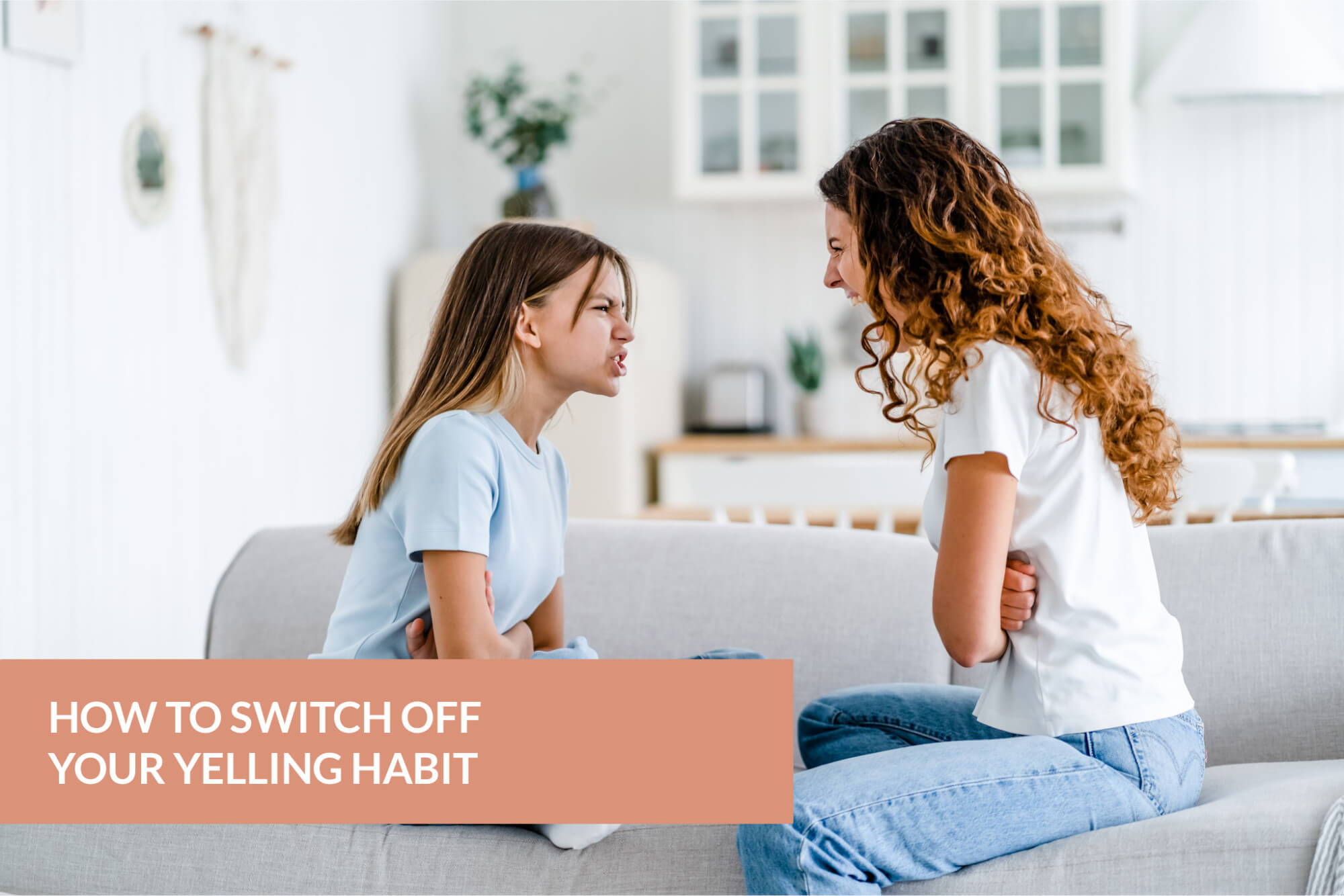
I used to be an angry, yelling mom. Postpartum anxiety left me feeling ragey over every little thing. Too many toys on the floor? Yell at my toddlers to pick them up. Blueberries dropped on the kitchen floor? Yell at them that food belongs on a plate, not the floor. Fighting over a toy? Yell at them that it's not okay to hurt each other! Yes, I even yelled at them to stop yelling in the house.
I knew yelling when it wasn't an emergency was harmful to my children's developing brains and to our relationship. And I was committed to changing and doing better. But for me, learning not to yell took time and effort. (And yes, since my rage was the result of postpartum anxiety, it required addressing the root issues as well,)
One of the tricks I used to keep from yelling was to sing or use a "shocked queen" voice when I caught myself yelling or felt the urge to yell. Over time, I learned to SWITCH off my yelling habit. Here's what I mean:
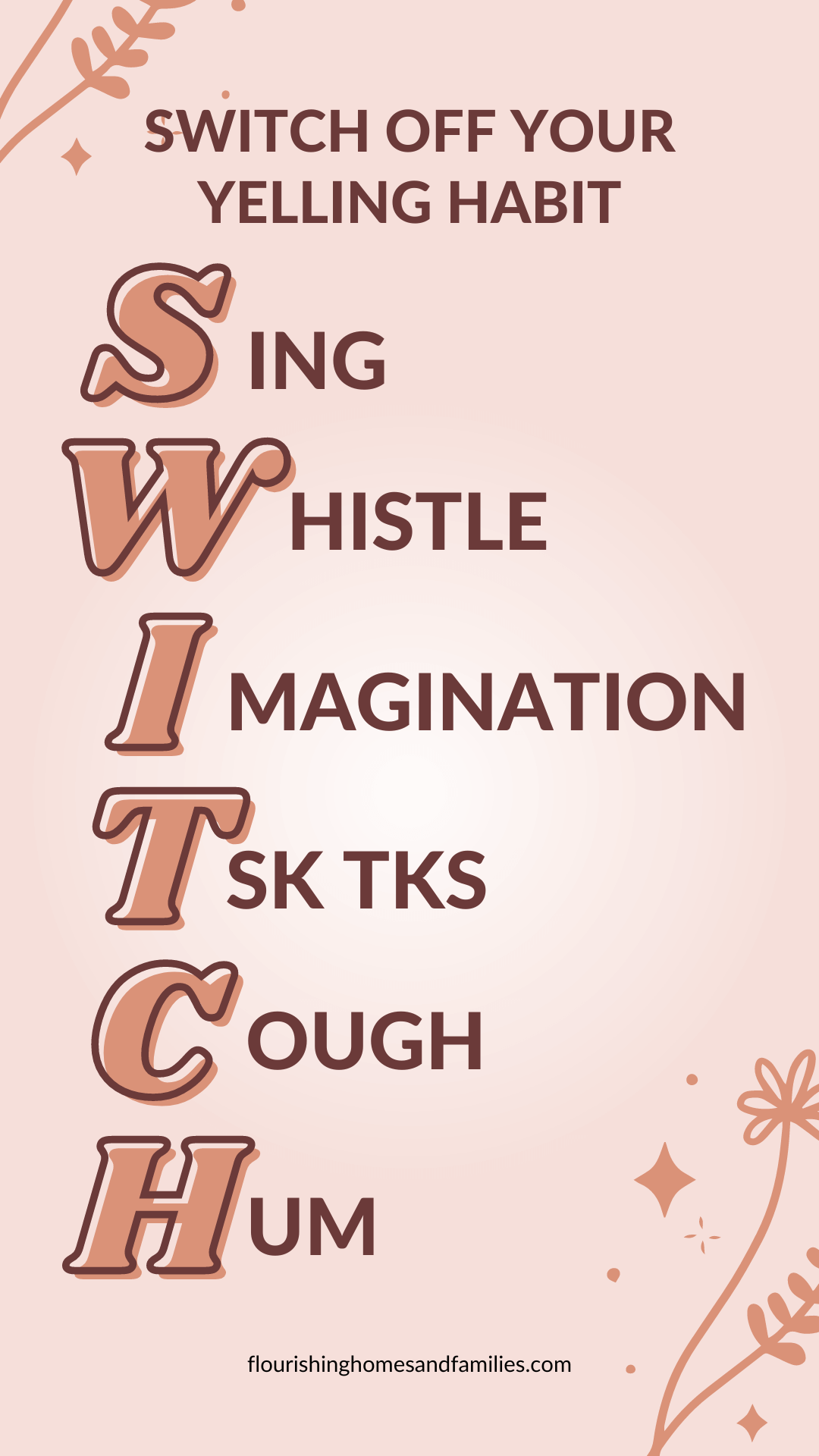
Interrupt your neural pathways
Whether yelling was passed on to you from your parents, or you started using it out of desperation, once your brain learned to use yelling as a parenting tool, it formed a neurological pathway that makes it really, really easy to resort to yelling. As you work to transform your parenting triggers, create new responses, and use new parenting tools you have to create a "roadblock" on the old pathway so your brain learns to take the new pathway - or new response. Here are some "roadblocks" you can use to S.W.I.T.C.H to a new response so you can start developing new habits.
Start Singing
This is a great tool to use when you're feeling frustrated, or when your kiddo doesn't seem to be listening. Singing has been found to reduce cortisol (the stress hormone) in your body, and because it is a tool for building connection with your child, it can help ease tensions and help you communicate in a less threatening way. Example: kids fighting over a toy - Sing: "You can come up with a plan, to share between two brothers. Or you can put it in my hand, and it will stay with mother. Until you come up with a plan that shows kindness to each other. The great thing with kids is that you don't even have to use a familiar tune! It's fine to totally wing it!
Whistle a Tune
When you catch yourself yelling, switch to whistling a tune for just a few moments. Not only will this serve as a "roadblock" to redirect your brain to the new habit you're working towards, it can also help calm your stress response. Whistling forces you to breathe through pursed lips, which is a proven way to slow your heart rate and calm your central nervous system. Plus, whistling has been found to lighten your mood. If you can't whistle? Don't worry! You can blow through your lips as if you're whistling, and still get the stress- calming benefits.
Imaginative Play
Playfulness is a tried and true way to connect with your child. When you catch yourself yelling, switch to imaginative play to help ease the tension that just exploded. Example: Child isn't cooperating at bed time, and you've just yelled to get in the bath or else... "Or else, when your feet turn to flippers you're going to fall straight to the ground and start flapping and flopping like a fish out of water! It's just about time for mermaid flippers to show up!" You can use any and all imaginative play, and the great thing is that you don't necessarily have to stop yelling! You can continue with the momentum, but shift it to playfulness and silliness.
Tsk, Tsk, Tsk
This one is handy because you can use that *tsk tsk* sound that's notorious for communicating shame, and use it positively instead! When you catch yourself yelling, switch to a Tsk...tsk. sound between your teeth. That sound is an alveolar formed by suction in your mouth, and you can use it to settle your nervous system and interrupt your old neural pathway. Be careful with this one, though. If you're overly hard on yourself, or struggle with guilt and shame, either skip this one, or only use it intentionally and without shaming yourself or your child.
Cough, Cough
It's a bit surprising, but coughing - a really good, guttural cough, can help lower your heart rate by stimulating the vagus nerve. That's why this is a great tool for interrupting yourself when you catch yourself yelling. You already have a bit of force coming out of your mouth - simply redirect it to a few good, hard, coughs to help lower your heart rate and re- wire your brain. Once you've accomplished the task of interrupting the old habit, remember to practice your new response to replace yelling.
Hum...
Kind of like whistling, humming is a great tool to switch off your old habit of yelling. Humming has been found to be a natural way to self soothe, as it reduces stress and induces calmness throughout the body. Humming can be used in place of mindful breathing to softly force air out of your belly. And lastly, humming is known to elevate one's mood and promote feelings of peace and happiness. Tip: Have a song in mind that will be your go-to when you catch yourself yelling. Don't assume you'll be able to come up with one on-the-spot!
Need more helping taming your parenting triggers? Check out our Peacemaker Parenting: Peaceful Reset workshop, it's helped thousands of parents understand and heal their triggers so they can parent with peace and purpose.
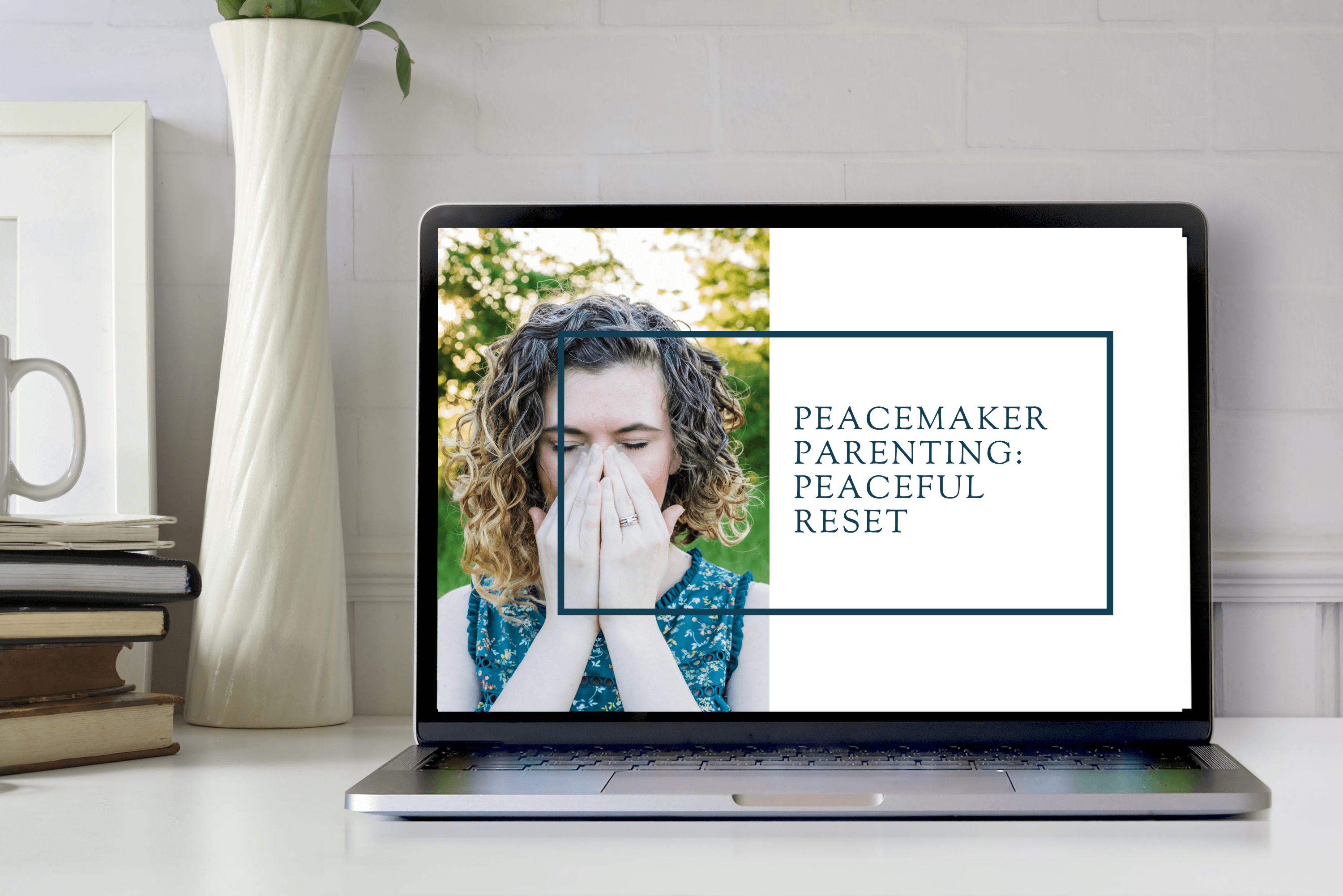
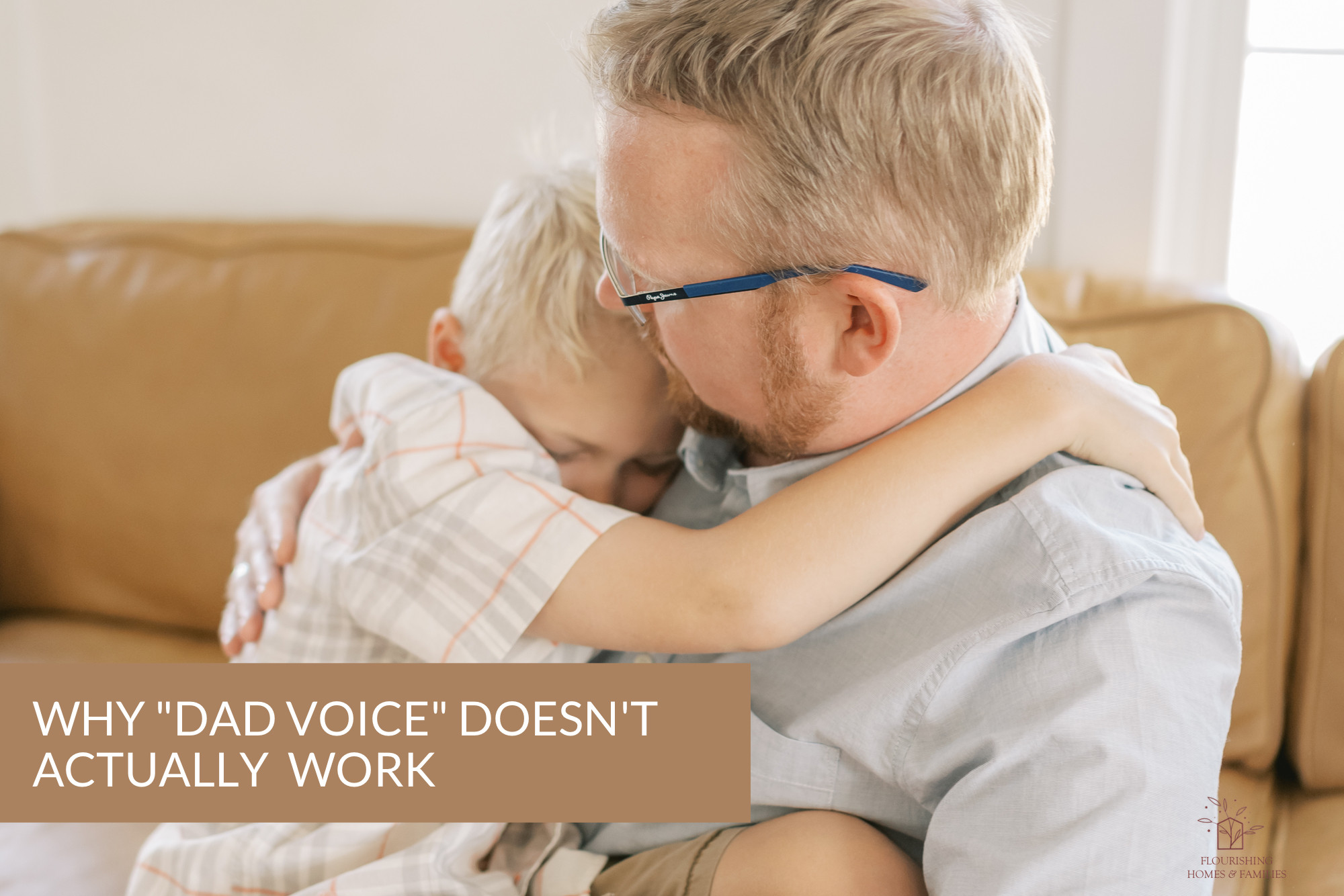
I never expected I would be a parent who yelled at my kids. I'm typically a pretty quiet guy. Unless I'm proclaiming God's Word. Plus I'm usually a pretty patient person. At least that's what I thought before I lived with toddlers.
But as my son got older I got into the habit of using my "Dad voice." You know the one. The one that stops you in your tracks. The one that clearly re-asserts parental authority. The one that reminds you that Dad is a whole lot bigger than you are. Why did I use it? Because it seemed to work. It would instantly stop whatever misbehavior was happening.
There was just one problem. It made it impossible to actually discipline my son. Sure the behavior was stopped, but he wasn't learning anything from me. Once I went into Dad Voice, he stopped listening to my words and only heard my tone. His brain went into fight-or-flight mode and his sole focus was on escaping the interaction as quickly as possible. Which meant he learned nothing. Which meant we were probably going to do it all over again very soon. My Dad voice was a failure.
So what did I do? I kept working at not channeling my frustration into my voice. I continued to practice consciously choosing a calm voice before entering a situation. I kept choosing to do better as much as I could, until using my calm voice became a habit. I'm still not perfect. I used my Dad voice once last week. It still has the same effect. I'll keep working on it.
But as my son got older I got into the habit of using my "Dad voice." You know the one. The one that stops you in your tracks. The one that clearly re-asserts parental authority. The one that reminds you that Dad is a whole lot bigger than you are. Why did I use it? Because it seemed to work. It would instantly stop whatever misbehavior was happening.
There was just one problem. It made it impossible to actually discipline my son. Sure the behavior was stopped, but he wasn't learning anything from me. Once I went into Dad Voice, he stopped listening to my words and only heard my tone. His brain went into fight-or-flight mode and his sole focus was on escaping the interaction as quickly as possible. Which meant he learned nothing. Which meant we were probably going to do it all over again very soon. My Dad voice was a failure.
So what did I do? I kept working at not channeling my frustration into my voice. I continued to practice consciously choosing a calm voice before entering a situation. I kept choosing to do better as much as I could, until using my calm voice became a habit. I'm still not perfect. I used my Dad voice once last week. It still has the same effect. I'll keep working on it.
What if your child could learn real respect without you demanding he give it? What if you could teach our child to obey without forcing her to do everything she’s told? What if you could do all these things while building a relationship of honor with your child? Honor that outlasts our child’s childhood? Do you desire to instill values of honor and respect in your children, but sometimes find it challenging? We understand your concerns, and we're here to help.
Here's what past attendees have to say:
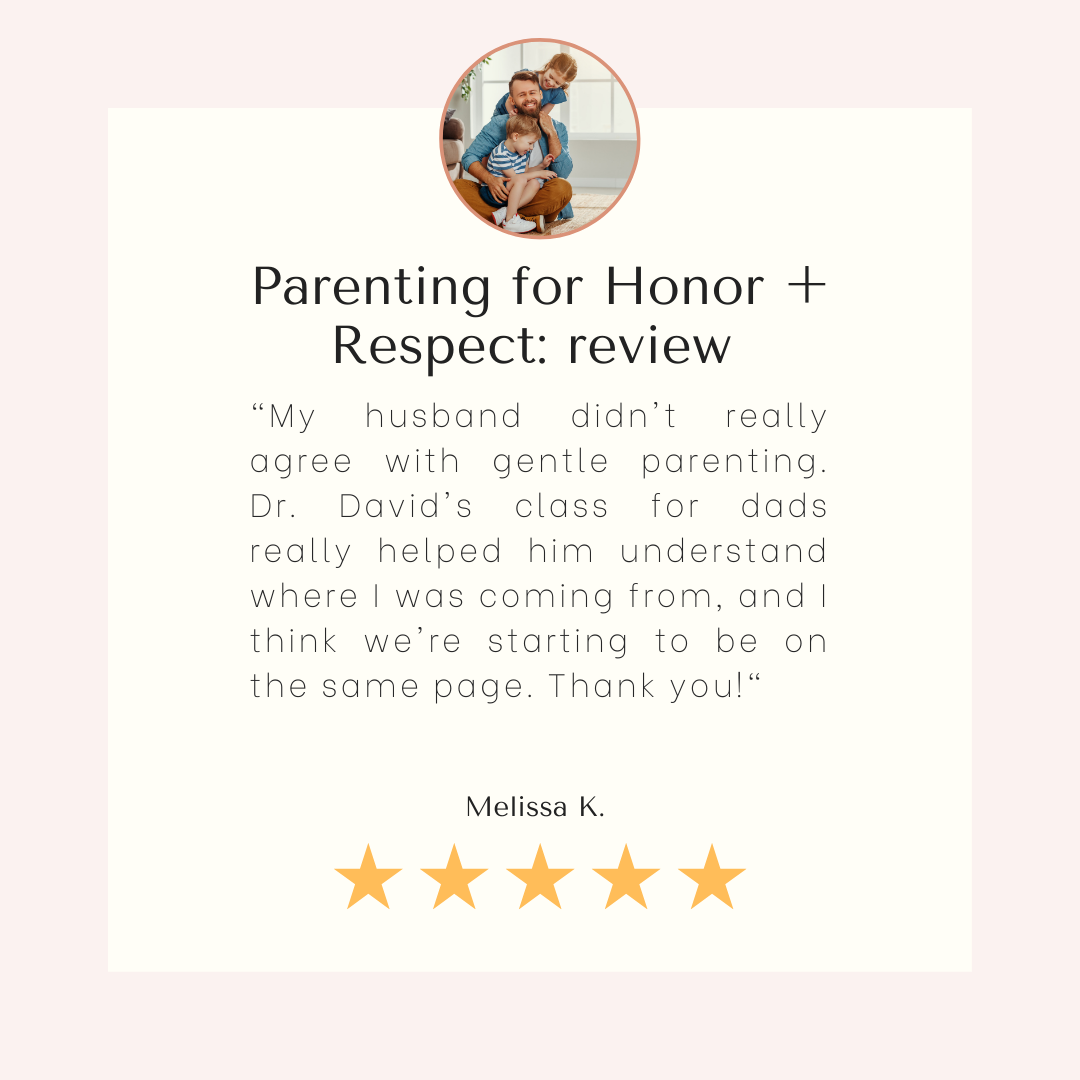 | 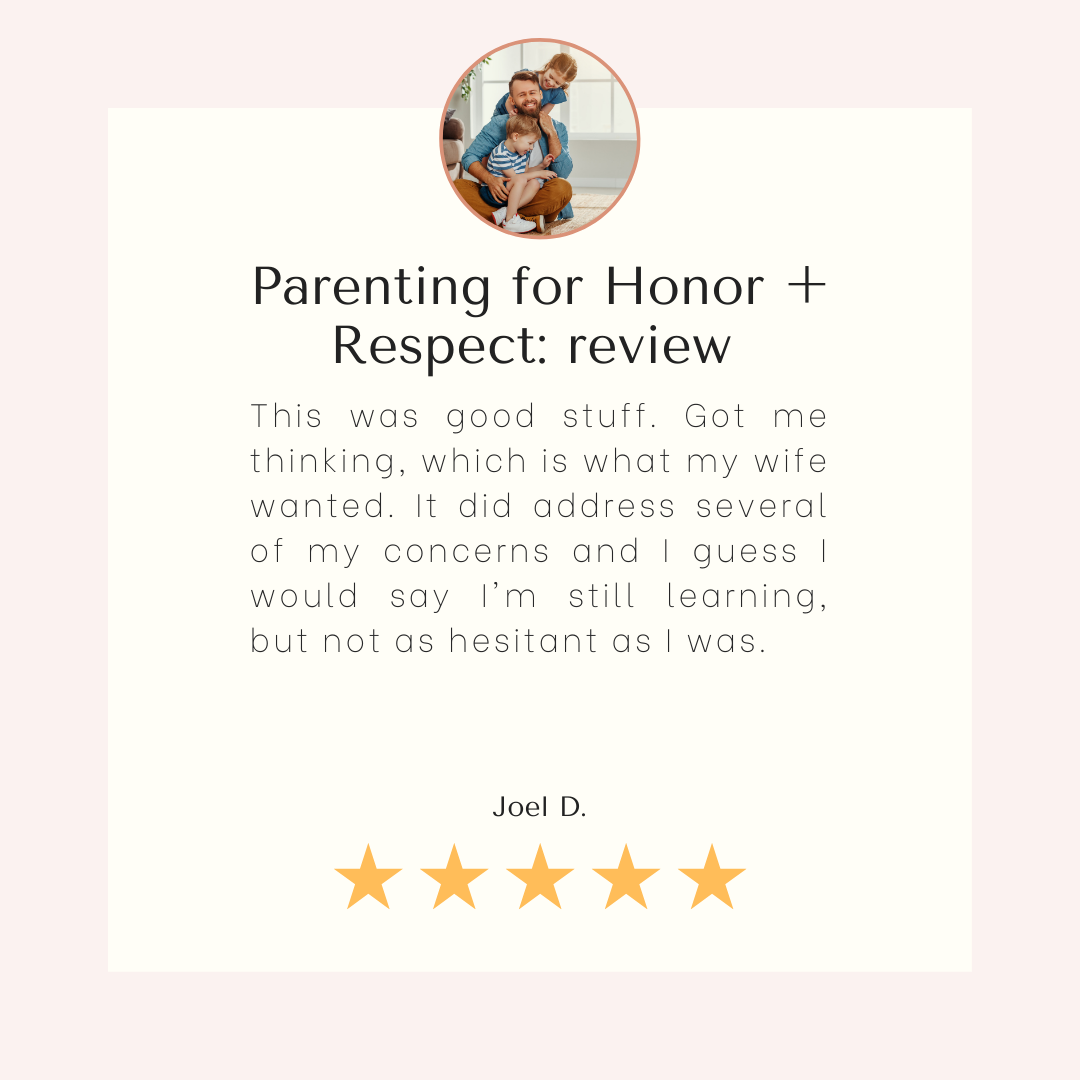 |
You Might Also Like
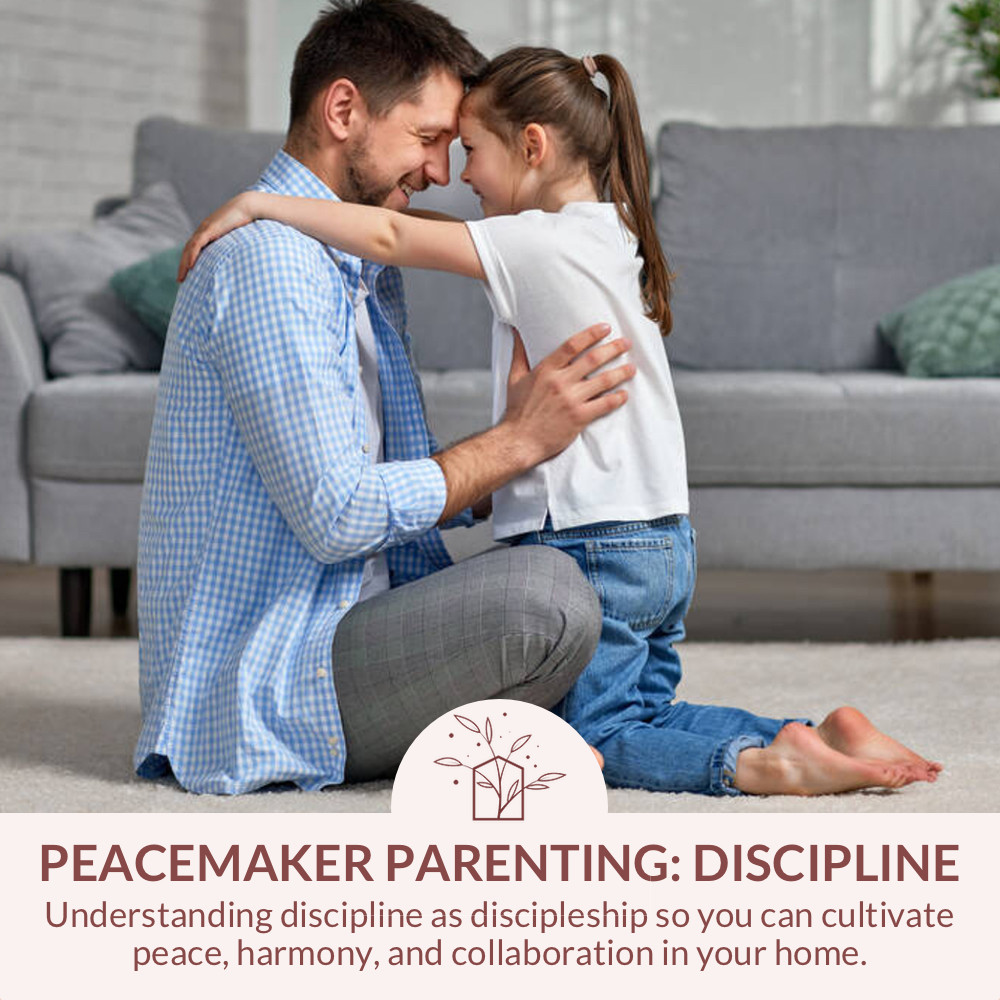 |  |









